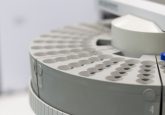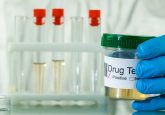Anti-doping device offers immediate results for drug testing

Researchers from Tomsk Polytechnic University (TPU; Tomsk, Russia) have developed a prototype device that will test for the presence of performance-enhancing drugs in athletes. The anti-doping device is based on an electrochemical method, offering immediate results, ease of use and a cheaper alternative to current testing methods.
The new device is designed primarily to detect meldonium, a banned substance in sport due to its athletic performance-enhancing effects. Olga Mesentseva, TPU, explained: “The most popular method to test meldonium in the athlete blood is gas chromatography with mass spectrometric detection. This method involves using rare and expensive reagents, the process of samples preparation for analysis is also expensive. Our reagents are affordable, and therefore inexpensive. The electrodes, which we use in the device are standard and fit most voltohmmeter devices.”
The prototype offers a user-friendly interface and increased mobility compared to current devices. The device is compact and, unlike existing methods of drug testing, does not require post-processing of results or additional software: all the data are displayed on the display of the device itself.
The device is built on the basis of an electrochemical technique, which detects substances after current exposure. In addition to detecting meldonium, the researchers point out that the device can be “fine tuned” to detect other drugs by changing the electrodes.
“Initially, our research team developed a technique for rapid meldonium testing in the athlete body, but now we have set ourselves a broader task – to develop devices to test athletes on different types of drugs,” commented Mezentseva.
The team are now developing the anti-doping device further with the aim of bringing it into use in the near future. Mezentseva added: “Now we are carrying out with colleagues metrological evaluation of the developed technique. [We] plan to develop the chosen direction, improve the device. By the end of 2016, we intend to create the first prototypes of universal electrochemical analyzers.”
Sources: TPU press release via EurekAlert





